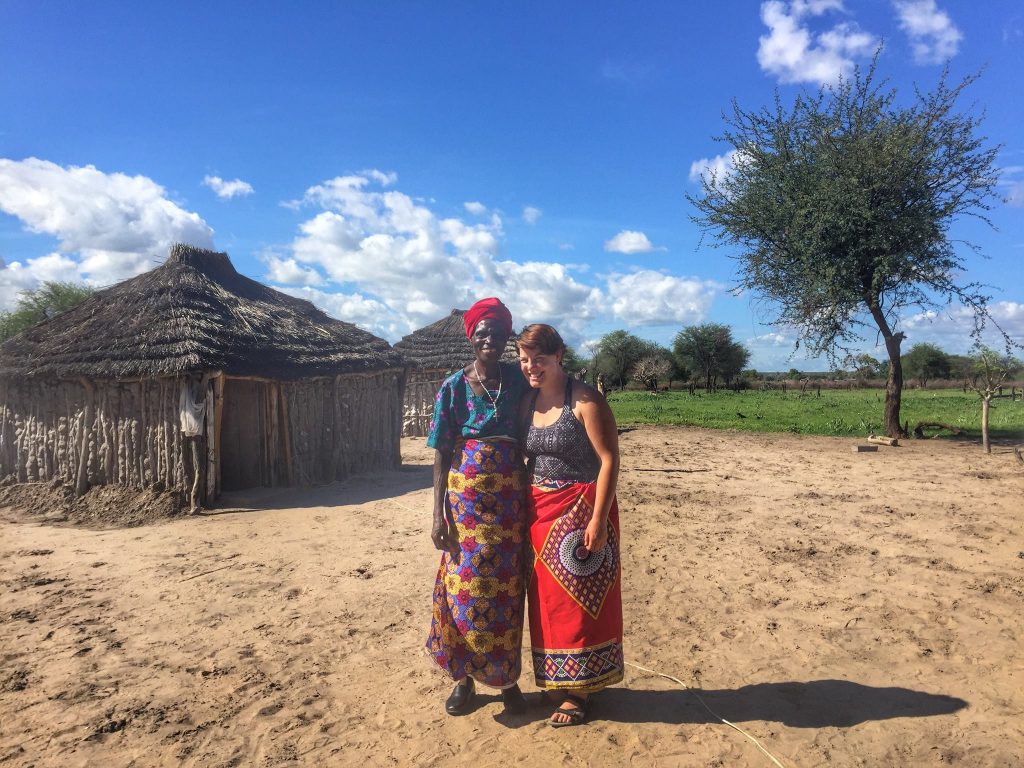by Stephanie Sestito (MSIH Class of 2021)
Like many terms that get bandied about in global health (which is, in itself an amorphous and ever-changing term), cultural humility isn’t a simple or straightforward concept. I’d like to share with you my personal definition and some of the strategies that I envision as being a part of cultural humility.
Cultural humility is a liberating, continual process. No matter how often you practice cultural humility, you will never arrive at the finish line – having learned all you need to know. It involves self-education, curiosity, open-mindedness, and an appreciation for difference. It trains you to look for distinctions and similarities between yourself and the people around you, without attempting to place people into tidy boxes. It recognizes that our patients are experts in their own right, that their knowledge of how to navigate their lives, how to provide for themselves and their families, and how to care for their own health is based on a unique body of experiences. It’s realizing that a person who injects drugs is probably better than most hospital staff at finding a tough vein, and that the mother in an urban food desert who buys her children fast food for dinner is doing the best she can to feed her family.
Learn more about the Ben-Gurion Global Health Scholarship. Applications are due by January 31st.
When an individual practices cultural humility, it might stand out less than when an individual does not. It is especially evident in a medical setting, when a health care provider does not possess cultural humility. It might sound like stereotypes, or generalizations, or it could be direct provider-patient confrontation and disagreement about treatment plans. It might be placing blame on a patient for their poor health, or having prejudice toward patients of a particular race, ethnicity, gender, orientation, religion, or documentation status. It might be sarcastically remarking on rounds, “This guy is a real upstanding citizen,” when referring to patient who has been labeled noncompliant. It might be the very term “noncompliant” which puts the physician in an unquestionable place of power, and implies the patient must “comply” with the provider’s wishes, or face perpetual judgement – ignoring any other mediating factors. All of these attitudes and practices lead to patient mistrust, and a broken provider-patient relationship. Together with social determinants of health, a lack of cultural humility translates into poor health outcomes for the most vulnerable patient groups.
I’d like to provide a simple case study of one way I experienced cultural humility. It wasn’t particularly glamorous, or all that inspiring – but I think it provides some (humorous) insight. It’s about laundry. So, whether you’re washing clothes or treating a patient, here are some behaviors and strategies we can all employ (or in some cases avoid) along the way to becoming more culturally humble.
From 2012 to 2014 I lived in a small village (population ~500) in northern Namibia, teaching English. The village had two main water sources, the Kavango River and a borehole well near the school where I taught. Most people in the village did not have electricity (the few exceptions being other teachers at the school, who were among the few residents who participated in a cash economy). There was no access to running water, and few families had access to adequate pit latrines.

It might go without saying, but I did not have access to a washing machine while I lived there. So what’s a gal to do with all her dusty, sweaty clothes (and sheets and towels!)? Wash them by hand, of course! As a twenty-one year old woman washing by hand for the first time, I’ll gladly admit that my skills were sub par. Here are some things I learned by doing laundry.
It’s tempting to hide your ignorance, but don’t. Because my hand-washing skills were essentially nonexistent when I arrived, laundry day was something of an event. My host family (especially my 9 year old sister) would watch in a mixture of amazement, pity, and amusement as I struggled to achieve clean (or at least less dirty) clothing. Early on, my pride kicked in, and I began washing my clothes inside my hut. Eventually, I realized this was making me even more of a social anomaly (because in this setting, laundry is almost always done outside, in a social environment). I think the desire to hide from scrutiny, however, is significant. A failure to own up to your own shortcomings, lack of knowledge, or previous assumptions will always prevent you from practicing cultural humility. Until you admit that your knowledge isn’t sufficient to handle the situation, you won’t be able to address it properly.
Identify experts, but don’t rely on one opinion. One of the best ways to learn is to seek out quality sources of information. But reading about a location, or a group of people can’t give you an adequate understanding of their culture, beliefs or practices. Speaking to experts (members of a particular community, for example) is the best way to fill in those gaps and get a more complete understanding. To apply this to my laundry learning – no matter how many books I read or videos I watched, my hand washing would only have improved marginally without hands-on guidance from my host sister. Then again, taking one person’s viewpoint or technique and extrapolating that “all people in this group think ‘x’” or that there is only one right way to wash clothes, would be incorrect. As much as possible, seek to expand your viewpoint.
Ask questions. Lot of them. Ask which soap to use, and how much soap is enough, ask how to position your hands, and how many times to rinse. Ask what you’re doing wrong, and why your knuckles have been rubbed raw. Ask about their laundry philosophy, ask what are the best and the worst parts of doing laundry, ask why men don’t do the laundry, ask how many hours a week they wash the laundry, ask why some people carry the laundry to the well to wash while others carry the water home to wash there. And when you’re done asking questions about laundry, proceed to the next topic about which you are curious but ignorant, and soak in all they have to tell you.
Remember the lessons you learn, and apply them to future situations. I remember all of this about washing laundry by hand for two years. And I also remember the feeling I got when I succeeded. When I joined the ranks of women who stood tall and carried heavy loads of water back and forth from the well to the homestead, and sat in the warm shade, and laughed and chatted and flicked sudsy water at my dog, while practicing my new skill. The lesson I reflect on the most is to persist, even in a task as mundane as laundry, until you reach your goal. Remember your failures as much as your successes, and bring all of that with you each time you take on a new endeavor.
May your life and your laundry be filled with opportunities for self-improvement – and may you seize each and every one of them.



